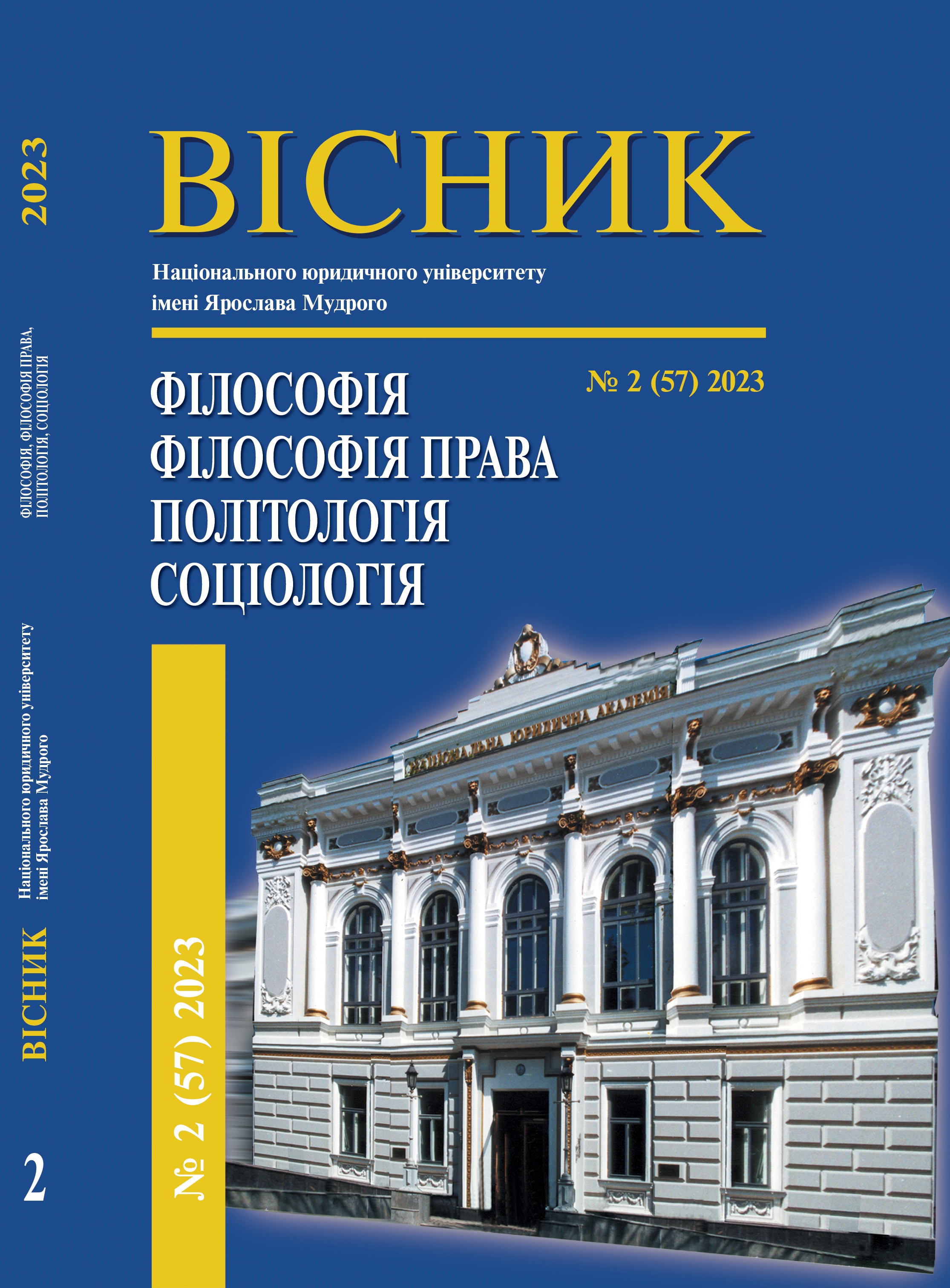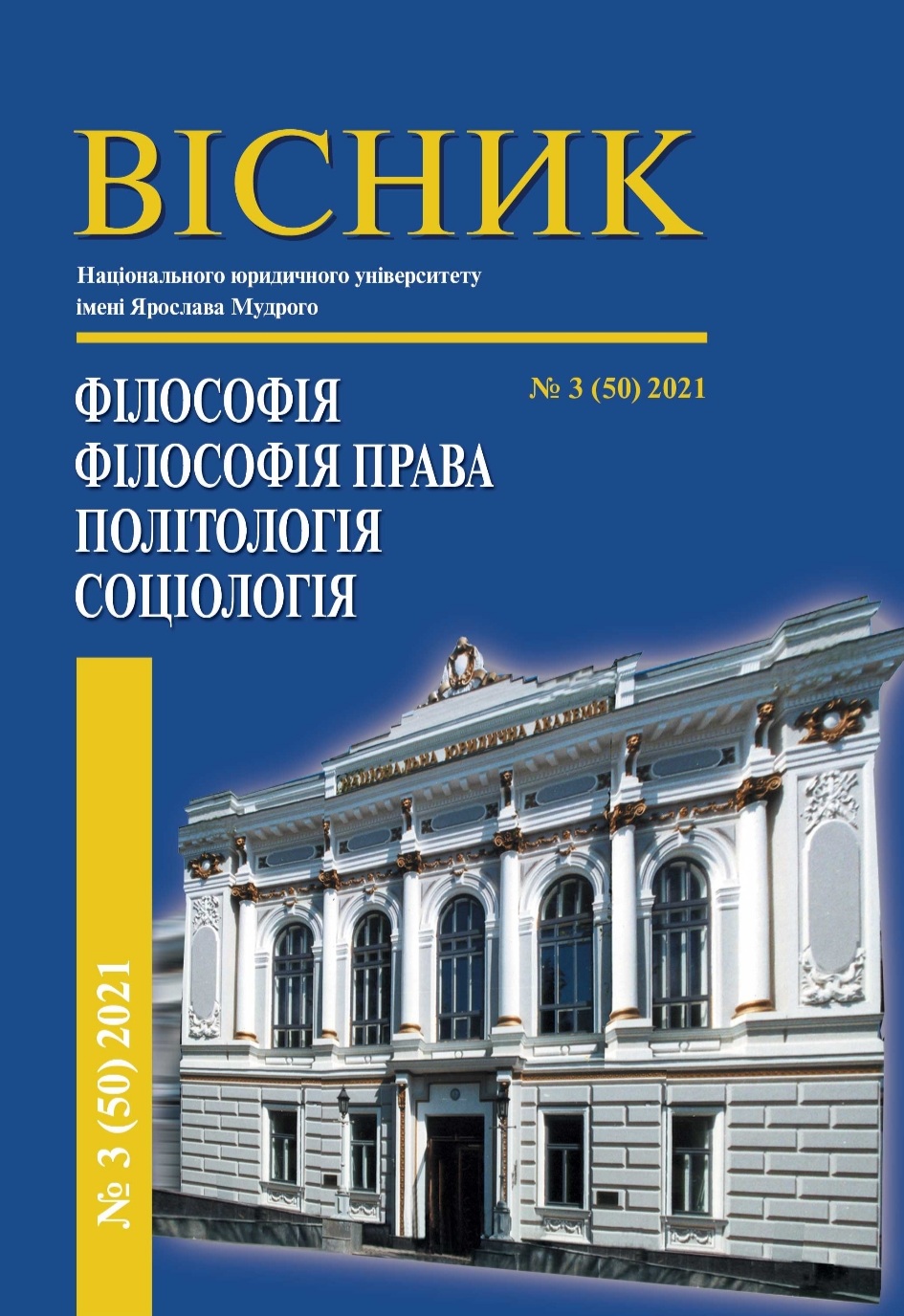ПРОБЛЕМИ ТА ПЕРСПЕКТИВИ МАСОВИХ ОПИТУВАНЬ ГРОМАДСЬКОЇ ДУМКИ
DOI:
https://doi.org/10.21564/2663-5704.57.276680Ключові слова:
громадська думка, опитування, помилка репрезентації, плебісцитарна демократія, маніпуляція, перспективи масових опитувань, вибірка, демократія, автократіяАнотація
У XXI столітті спостерігається суттєва криза електоральних процедур, що виявляється у зниженні довіри до них. Вона збіглася з кризою опитувальної технології вивчення громадської думки, що проявляється у зниженні результативності, зростанні кількості відмов, систематичній помилці репрезентацїї та залежності результатів від формулювання запитань. Перша криза грає на руку популістським стратегіям, опитування з помилками репрезентації стають зброєю в руках автократій, а друга криза вимагає розвивати нові способи видобутку й опрацювання інформації про поведінку індивідів, як-от аналіз алгоритмів, статистики інтернет-сайтів, аналіз великих даних. Мета цієї статті - відповісти на питання про те, якими можуть бути перспективи розвитку громадської думки у світлі зростаючих проблем репрезентативності.
Посилання
Casillas, Christopher J., Peter K. Enns, and Ptrick C. Wolfarth. 2011. "How Public Opinion Con- strains the U.S. Supreme Court." American Journal of Political Science 55(1):74-88. https://doi.org/10.1111/j.1540-5907.2010.00485.x
Crespi, Irving. 2013. The Public Opinion Process: How the People Speak. New York: Routledge.
Jacobs, Lawrence R., and Robert Y. Shapiro. 2000. Politicians Don't Pander: Political Manipulation and the Loss of Democratic Responsiveness. Chicago: University of Chicago Press.
Lazarsfeld, Paul F. 1957. "Public Opinion and the Classical Tradition." Public Opinion Quarterly 21(1):39-53. https://doi.org/10.1086/266685.
Luskin, Robert C. 2002. "From Denial to Extenuation (and Finally Beyond): Political Sophistication and Citizen Performance." Pp. 281-305 in Thinking about Political Psychology, edited byJames H. Kuklinski. Cambridge: Cambridge University Press.
Newcourt-Nowodworski, Stanley. 1996. Black Propoganda in the Second World War. Cheltenham, UK: The History Press.
Stoutenborough, James W., Donald P. Haider-Markel, and Mahalley D. Allen. 2006. "Reassessing the Impact of Supreme Court Decisions on Public Opinion: Gay Civil Rights Cases." Political Research Quarterly 59(3):419-433. https://doi.org/10.1177/106591290605900310
Toepfl, Florian. 2018. 'Innovating Consultative Authoritarianism: Internet Votes as a Novel Digital Tool to Stabilize Non-Democratic Rule in Russia." New Media & Society 20(3):956-972. https://doi.org/10.1177/1461444816675444
Truex, Rory. 2017. "Consultative Authoritarianism and Its Limits." Comparative Political Studies 50(3):329-361. https://doi.org/10.1177/0010414014534196.
Verba, Sidney. 1996. "The Citizen as Respondent: Sample Surveys and American Democracy Presidential Address, American Political Science Association, 1995." American Political Science Review 90(1):1-7. https://doi.org/10.2307/2082793
Aguinis H., Pierce C.A., Quigley B.M.: Conditions under which a bogus pipeline procedure enhances the validity of self-reported cigarette-smoking—a meta-analytic review. J. Appl. Soc. Psychol. 23, 352–373 (1993)
Adorno T. W., Frenkel-Brunswik E., Levinson D. J., Sanford R. N. (1950). The Authoritarian Personality. Oxford, UK: Harper & Brothers.
Ahadi S. A., Rothbart M. K. (1994). Temperament, development, and the Big Five. In Halverson C. F., Kohnstamm G. A., Martin R. P. (Eds.), The developing structure of temperament and personality from infancy to adulthood (pp. 189-208). New York, NY: Psychology Press
Aichholzer J., Zandonella M. (2016). Psychological basis of support for radical right parties. Personality and Individual Differences, 96, 185-190.
Bakker B. N., Klemmensen R., Nørgaard A. S., Schumacher G. (2015). Stay loyal or exit the party? How openness to experience and extroversion explain vote switching. Political Psychology, 37, 419-429.




